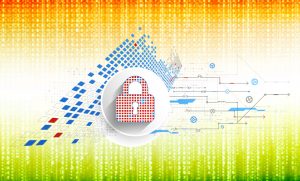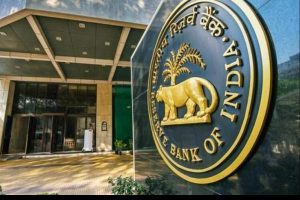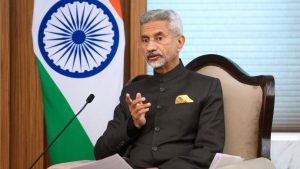Today Current Affairs: 20th December 2021 for UPSC IAS exams, State PSC exams, SSC CGL, State SSC, RRB, Railways, Banking Exam & IBPS, etc
Table of Contents
India’s Data Protection Bill:

Nearly two years after it was constituted on 11 December 2019, the Joint Committee on the Personal Data Protection Bill, 2019, headed by BJP MP P.P. Chaudhary, has presented its final report on the upcoming bill in both Houses of Parliament on 16 December.
Key recommendations:
- Remove the word ‘personal’ from the existing title of ‘Personal Data Protection Bill’.
- This is intended to reflect that the bill, in order to better ensure privacy, will also be dealing with non-personal data, such as personal data that has been anonymised.
- Amend the section restricting the transfer of personal data outside India to say “sensitive personal data shall not be shared with any foreign government or agency unless such sharing is approved by the central government.
- No social media platform be allowed to operate in India unless its parent company, which controls the technology powering its services, sets up an office in the country.
- It proposes a separate regulatory body to be set up to regulate the media.
- Jail term of up to 3 years, fine of Rs 2 lakh or both if de-identified data is re-identified by any person.
- The word ‘personal’ ought to be dropped from the name of the Bill.
- Central government may exempt any government agency from the legislation only under exceptional circumstances.
Tamil Thai Vaazhthu: The State Song Of Tamil Nadu

The Tamil Nadu government has declared Tamil Thai Vaazhthu, a prayer song sung in praise of Mother Tamil, as the State Song.
- A Government Order (GO) had been issued directing that everyone who is present during the rendition of the song, barring differently abled persons, should remain standing.
- The order has come less than two weeks after the Madurai Bench of Madras High Court said (Kan. Ilango v. State case) that “There is no statutory or executive order requiring the attendees to stand up when Tamil Thai Vaazhthu is sung.”
- The High Court referred to Bijoe Emmanuel vs. State of Kerala case (1986), in which the Supreme Court ordered the readmission to school of three children of the Jehovah’s Witnesses, who had been expelled for refusing to sing the national anthem.
- It was noted (by the Supreme Court) that there is no provision of law which obliges anyone to sing the National Anthem.
- Again, while the Supreme Court had, in Shyam Narayan Chouksey v. Union of India (2017), directed that all cinema halls shall play the national anthem before the film and all present are obliged to stand, it had modified the original directions and made it “optional and not mandatory”.
- While “it is true that the members of the audience conventionally stand up whenever Tamil Thai Vaazhthu is sung, the question is whether this is the only mode in which respect can be shown”.
- When we celebrate pluralism and diversity, insisting that there can be only one way of showing respect reeks of hypocrisy.
- Also, it would be “false respect” if people respected something only by law, and a law that was made for that one person.
Bullock Cart Race: Maharashtra

The Supreme Court has allowed Maharashtra to hold bullock cart races in the state till the pendency of the matter before the constitutional Bench of the apex court. It is a 400-year-old tradition.
- Bullock cart races were banned in Maharashtra after the Supreme Court declared that the race as violative of the provisions of the central act in 2014.
- After the Tamil Nadu government enacted a law to regulate jallikattu (taming of the bull), there was a demand to revive bullock races in Maharashtra.
- In April 2017, the Maharashtra assembly had passed a legislation for resumption of bullock cart races across the state.
- In August 2017, the Bombay High Court passed an interim order restraining the Maharashtra government from giving permission for bullock cart races anywhere in the state.
- The state then approached the Supreme Court.
- The Maharashtra government, on Wednesday, had told the SC that the ban on bullock cart races in the state should be lifted as the same is being conducted in the states like Tamil Nadu and Karnataka.
- The SC, while allowing the resumption of bullock cart races, has observed that the validity of the amended provisions of the Prevention of Cruelty to Animals Act, 1960 and the rules framed by Maharashtra, which provided for bullock cart race in the state, would operate during the pendency of the petitions as the entire matter has been referred to a constitution Bench.
Pegasus Snooping:

The Supreme Court has stayed further proceedings of a Commission of Inquiry appointed by the West Bengal Government to look into allegations of snooping using the Pegasus software.
- The continued use of spyware Pegasus, which an Israeli company sells to governments worldwide, has been confirmed with fresh reports.
- Like the phones it targets, Pegasus has been apparently updated and now comes with new surveillance capabilities.
- Pegasus is a spyware tool developed by an Israeli firm, the NSO Group.
- Spyware spy on people through their phones.
- Pegasus works by sending an exploit link, and if the target user clicks on the link, the malware or the code that allows the surveillance is installed on the user’s phone.
- Once Pegasus is installed, the attacker has complete access to the target user’s phone.
- Pegasus can “send back the target’s private data, including passwords, contact lists, calendar events, text messages, and live voice calls from popular mobile messaging apps”.
- The target’s phone camera and microphone can be turned on to capture all activity in the phone’s vicinity, expanding the scope of the surveillance.
- A zero-click attack helps spyware like Pegasus gain control over a device without human interaction or human error.
- So all awareness about how to avoid a phishing attack or which links not to click are pointless if the target is the system itself.
- Most of these attacks exploit software which receive data even before it can determine whether what is coming in is trustworthy or not, like an email client.
Card Tokenization : RBI

Tokenization will replace card details with a code, called a “token,” which will be specifically for the card, the token requestor and the device being used to pay.
- Instead of the card’s details, the token will act as the card at point of sale (POS) terminals and quick response (QR) code payment systems.
- The goal of the process is to improve the safety and security of payments.
- The Reserve Bank of India’s plans to move towards card tokenization is likely to hit a wide range of companies from major e-commerce firms and food delivery firms to lenders, while increasing the use of cash.
- RBI issued guidelines in March 2020 saying that merchants will not be allowed to save card information on their websites to boost data security.
- It issued fresh guidelines in September 2021 giving companies until the end of the year to comply with the regulations and offering them the option to tokenize.
The Third India-Central Asia Dialogue:

The third India-Central Asia Dialogue will begin on Dec 18, 2021 in New Delhi. External Affairs Minister S Jaishankar will host the 3-day Dialogue
- The Ministers are expected to discuss further strengthening of relations between India and Central Asian countries with particular focus on trade, connectivity and development cooperation.
- The second meeting was organised by India in October last year via video conferencing.
- There has been an ongoing engagement between India and the five Central Asian countries over the last few years. India considers Central Asia as part of its extended neighbourhood.
- Dr Jaishankar visited Kazakhstan, Kyrgyz Republic, Tajikistan, and Uzbekistan this year and he also met Foreign Minister of Turkmenistan in October this year
Order Of The Druk Gyalpo Award To PM Narendra Modi:

The King of Bhutan, His Majesty Jigme Khesar Namgyel Wangchuck, conferred its highest civilian award, the Order of the Druk Gyalpo, on Prime Minister, Shri Narendra Modi on the occasion of the country’s National Day.
- This would be the latest of awards to be conferred on Modi by other countries.
- Last year, he received the ‘Legion of Merit by the US Government’ award of the US Armed Forces that is given for exceptionally meritorious conduct in the performance of outstanding services and achievements.
- In 2019, Russia conferred its highest civilian honour ‘Order of St. Andrew’ award on Modi. In the same year, the United Arab Emirates (UAE) conferred him with its highest civilian honour—‘Order of Zayed Award’.
- The Maldives gave him the ‘Order of the Distinguished Rule of Nishan Izzuddin’the highest honour for foreign dignitaries—in 2019.
- PM Modi also received ‘King Hamad Order of the Renaissance’, the top honour from Bahrain, in the same year.
- In 2018, the Prime Minister was conferred with the ‘Grand Collar of the State of Palestine Award’, Palestine’s highest honour awarded to foreign dignitaries.
- He has also received the ‘Order of Abdulaziz Al Saud’, the highest honour of Saudi Arabia awarded to non-muslim dignitaries and Afghanistan’s highest civilian honour ‘State Order of Ghazi Amir Amanullah Khan’ in 2016.
Russia Unveiled Proposals To Contain The U.S. And NATO In The Former Soviet Union:

Russia unveiled proposals to contain the U.S. and NATO in the former Soviet Union and Eastern Europe, calling for urgent negotiations with Washington as it amasses forces near Ukraine.
- Russia released unfinished security documents — an unusual move in diplomacy — that call for U.S.-led NATO alliance not to bring in new members or establish bases in ex-Soviet countries.
- The West says Moscow has readied some 1,00,000 troops for an imminent attack on Ukraine, which has been battling a pro-Moscow insurgency in its east since 2014.
- Russian President Vladimir Putin denies planning an attack and blames NATO for the rise in tensions, demanding “legal guarantees” the alliance will not expand eastwards.
- The draft document addressed to NATO says its members should “commit themselves to refrain from further enlargement, including the accession of Ukraine as well as other states”.
- It also insists that alliance members not conduct military activity in Ukraine or other countries in Eastern Europe, the South Caucasus and Central Asia.
- Moscow and NATO, the document said, should limit the deployment of missiles, set up an emergency telephone hotline and also work to “prevent incidents” in the Baltics and the Black Sea.
Biological Diversity Act, 2002:

Environmentalists have expressed concern over amendments to the Biological Diversity Act, 2002 on the grounds that it prioritises intellectual property and commercial trade at the expense of the Act’s key aim of conserving biological resources.
- Amendments to the Act were introduced as a Bill in the Lok Sabha by Environment Minister Bhupender Yadav.
- The amended Bill was drafted in response to complaints by traditional Indian medicine practitioners, seed sector, and industry and researchers.
- The bill was enacted for conservation of biological diversity and ensure fair and equitable sharing of the benefits arising out of the use of biological resources with indigenous and local communities, imposed a heavy “compliance burden” and made it hard to conduct collaborative research and investments and simplify patent application processes.
- The text of the Bill also says that it proposes to “widen the scope of levying access and benefit sharing with local communities and for further conservation of biological resources.”
- The Bill seeks to exempt registered AYUSH medical practitioners and people accessing codified traditional knowledge, among others, from giving prior intimation to State biodiversity boards for accessing biological resources for certain purposes.
- A statement from the Legal Initiative for Forest and Environment (LIFE) said the Bill would “undo all the efforts made in the last few years to implement the Biological Diversity Act.”
- There was not a “single provision in the proposed amendment to protect, conserve or increase the stake of local communities in the sustainable use and conservation of biodiversity.”
- LIFE said the amendments were done to “solely benefit” the AYUSH Ministry.
- The Bill in the current form would pave the way for “bio piracy” and would mean AYUSH manufacturing companies would no longer need to take approvals and thus defeat the purpose for which the Act was created in the first place.




